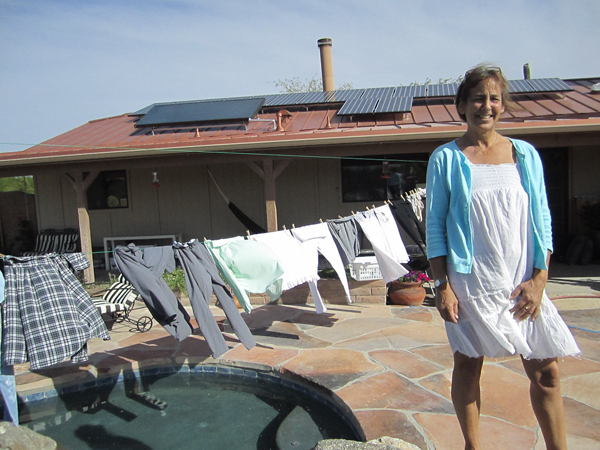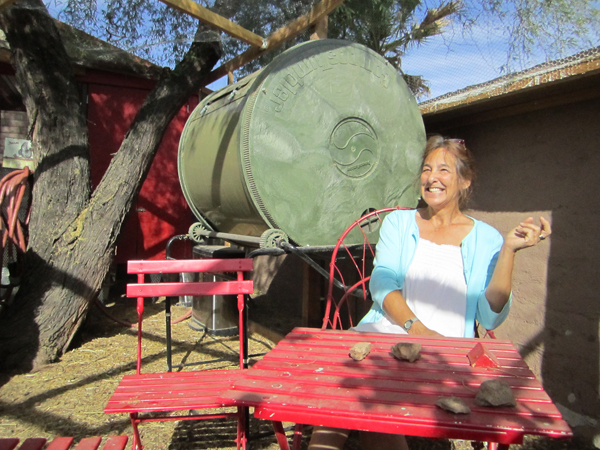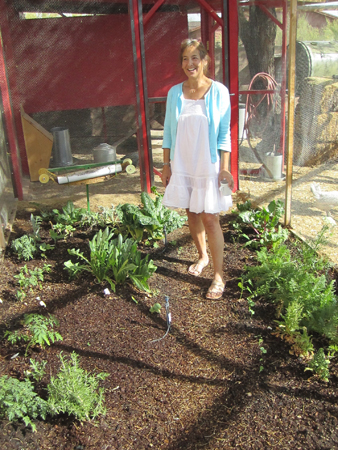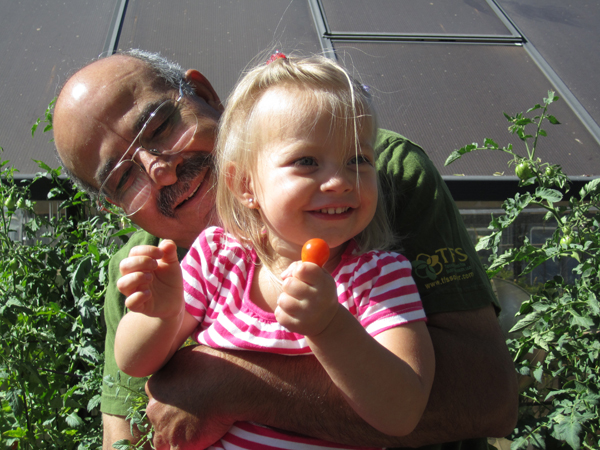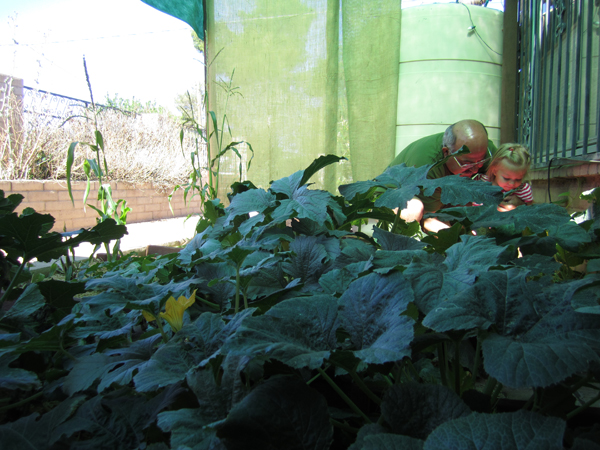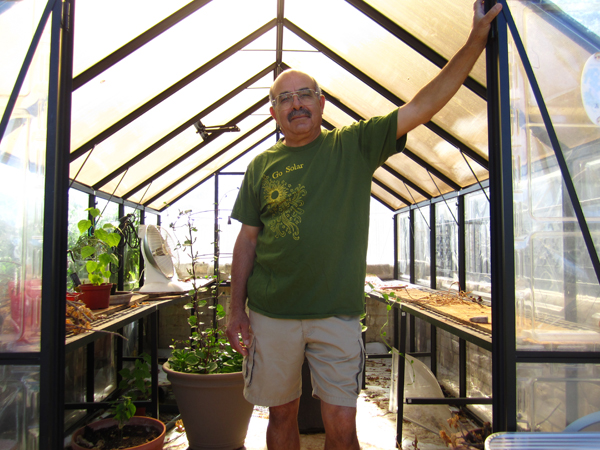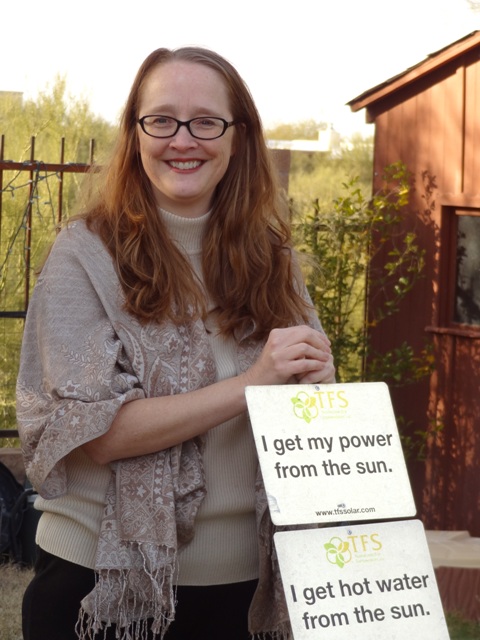 Heather Severson is a mom, writer, a professional technology liaison at the Southern Arizona Writing Project, and a sustainability role model. Her advice to those trying to go solar is pretty simple, “Start small; any step you take is in the right direction. It’ll make you feel good and it will pay for itself. There are so many non-quantifiable benefits to the planet and living right that there are no regrets, and you may find it addictive!”
Heather has been interested in solar power since it first became available. She grew up in a home that composted and collected rainwater, and has continued to build on her environmentally conscious roots. As an adult and a homeowner, she was inspired by friends in the sustainability community to research solar. Now she is the inspiration for many others, including her children, neighbors and community members.
Heather Severson is a mom, writer, a professional technology liaison at the Southern Arizona Writing Project, and a sustainability role model. Her advice to those trying to go solar is pretty simple, “Start small; any step you take is in the right direction. It’ll make you feel good and it will pay for itself. There are so many non-quantifiable benefits to the planet and living right that there are no regrets, and you may find it addictive!”
Heather has been interested in solar power since it first became available. She grew up in a home that composted and collected rainwater, and has continued to build on her environmentally conscious roots. As an adult and a homeowner, she was inspired by friends in the sustainability community to research solar. Now she is the inspiration for many others, including her children, neighbors and community members.
Heather was one of the first TFS customers to install solar electric (photovoltaic), solar hot water and rainwater harvesting all at once back in 2006. She recently added to her photovoltaic (PV) system by utilizing the Sun Power Lease and working with TFS through the Solar Benefits Tucson (SBT) Program. Heather says the TFS mission statement of putting values into action really resonates with her. She had a “perfect experience” and couldn’t imagine going anyplace else.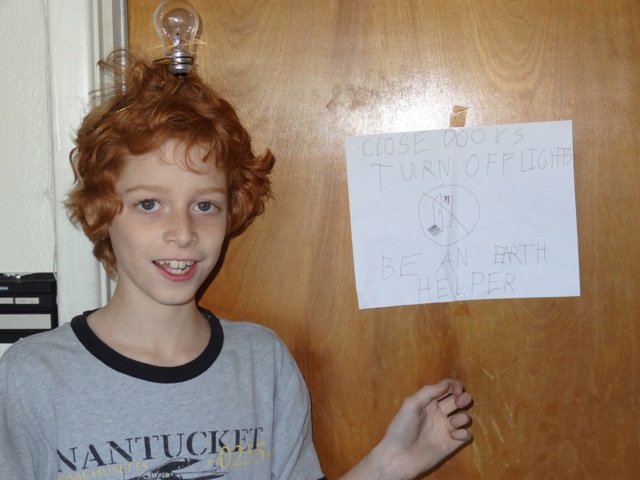
Her upgraded system now has data monitoring. “Monitoring is huge!” says Heather, who works for the UA from home and is able to use the data monitoring system as a tool to continually lower her family’s power usage. She has an alarm set for solar peaks and takes these opportunities to do laundry and other high power use activities.
In fact, Heather and her two sons have made their home into a bit of an ecology and energy sciences laboratory. Heather’s boys are growing up in an environment where conserving energy and water and helping the planet are “just normal, it’s what we do. That’s what humans do, take care of the earth.” 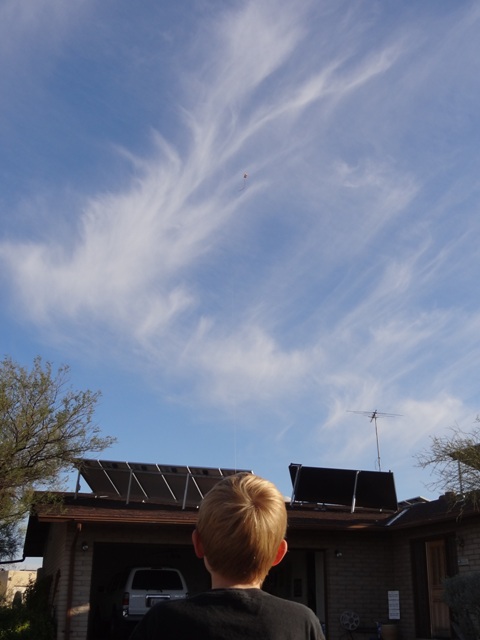 The Severson brothers are Earth Helpers, a group they founded with their young friends to care for the planet. They make their own signs as reminders to close doors, turn off lights and use less electricity. They have even adjusted their bath times to synchronize with optimal solar thermal hot water availability. The yard is an extension of their experimentation. Right now, they are researching beneficial plants that use less water, starting to grow vegetables and converting their lawn “chunk by chunk” into little gardens. Heather’s next step will be some gray water support for their gardening.
The Severson brothers are Earth Helpers, a group they founded with their young friends to care for the planet. They make their own signs as reminders to close doors, turn off lights and use less electricity. They have even adjusted their bath times to synchronize with optimal solar thermal hot water availability. The yard is an extension of their experimentation. Right now, they are researching beneficial plants that use less water, starting to grow vegetables and converting their lawn “chunk by chunk” into little gardens. Heather’s next step will be some gray water support for their gardening.
Heather believes, “We have a big mess to clean up. It wasn’t our fault, we didn’t make it, but we still have to deal with it.” Heather and her Earth Helpers are doing much more than just dealing with it. From the collection of solar powered toys, including a solar-charged scooter, to the fact that working from home means Heather drives less and has a solar powered office, the Seversons are inspiring others to be Earth Helpers.



